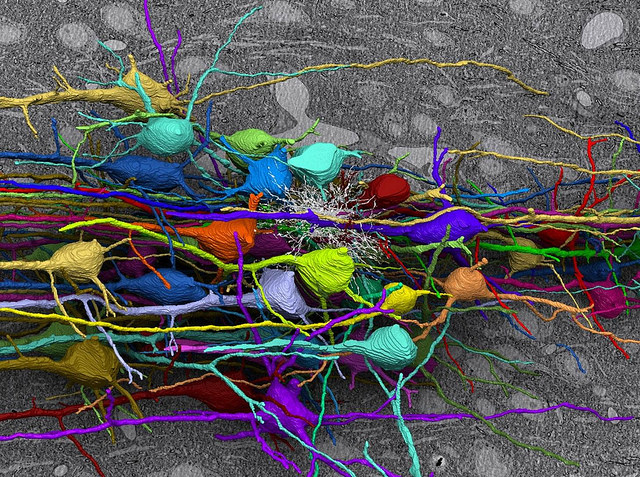A team of researchers from the Max Planck Institute of Molecular Cell Biology and Genetics in Dresden led by Dr. Wieland Huttner have discovered a gene important to the development of human intelligence called ARHGAP11B. The researchers attached fluorescent tags–proteins that highlight attached structures–to stem cells in human fetal and embryonic tissues to track and observe how the cortex of the brain develops. Marta Florio, a graduate student in the lab, said, “We specifically wanted to figure out which genes are active during the development of the cortex, the part of the brain that is greatly expanded in humans and other primates, and observe the comparison to rodents.” (
Image source: Steve Gschmeissner
Stem cells are a unique kind of cell that have the potential to either duplicate themselves or differentiate into more specialized types of cells like that of muscles or heart tissue. 56 activated genes were found in the human embryonic stem cells that were absent in the mice, the most active of which was ARHGAP11B, a gene previously suspected of being influential in human evolution. After inserting the gene into developing mice embryos, the team saw an increase in the number of neurons and folding in the neocortex, a phenomenon typical in human brains. The neocortex is a special region of the brain that is responsible for “higher functions” like speech, sensory perception, and conscious thought. Folding in this region allows more tissue to be packed into one space, leading to an increase in neuron density and the increased potential for higher intelligence. The researchers didn’t actually test for increased intelligence in the mice, but Marta has stated that this is another potential research project.
The full research paper can be found here.
Feature Image Source: 3D reconstruction of neurons by ZEISS Microscopy










